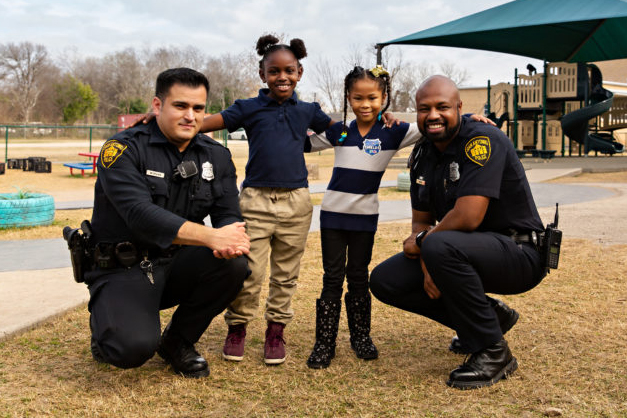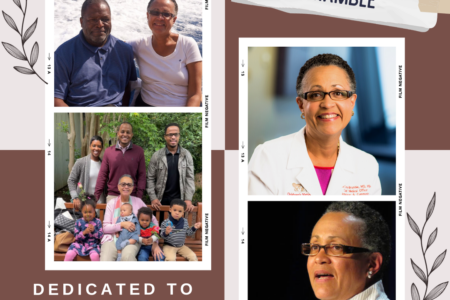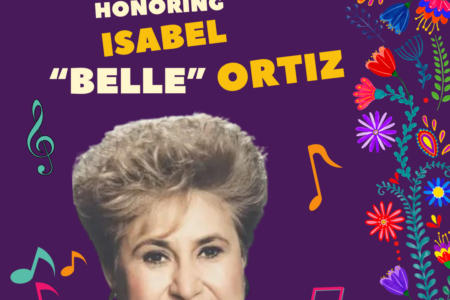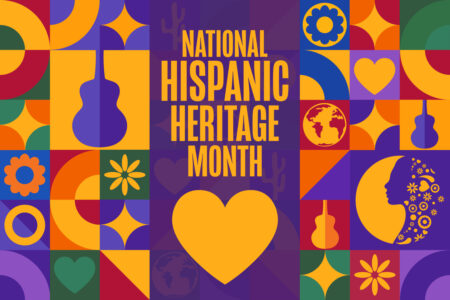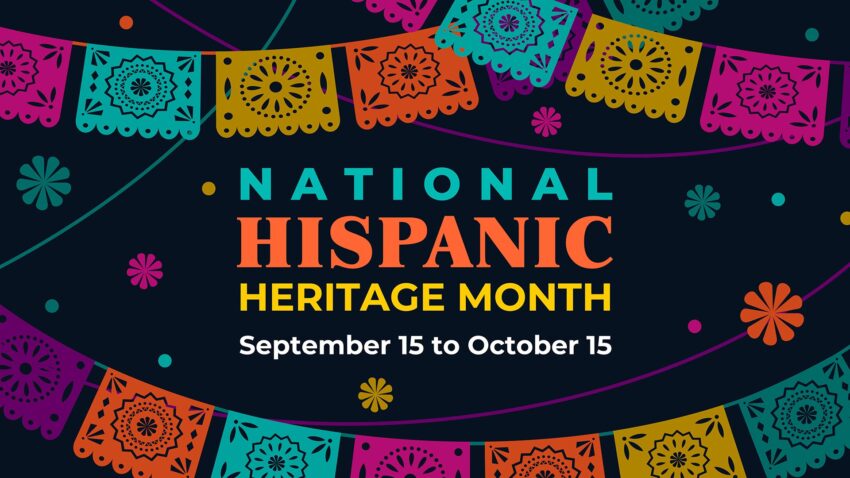
Share On Social!
Hispanic Heritage Month is here!
This annual U.S. observance, from Sept. 15 to Oct. 15, celebrates the histories, cultures, and contributions of Americans whose ancestors came from Spain, Mexico, the Caribbean and Central and South America.
We at Salud America! invite you to celebrate Hispanic Heritage Month in these awesome ways.
1. Learn How Hispanic Heritage Month Started
U.S. Congressmen Edward R. Roybal of Los Angeles and Henry B. Gonzales were among those who introduced legislation on the topic in 1968.
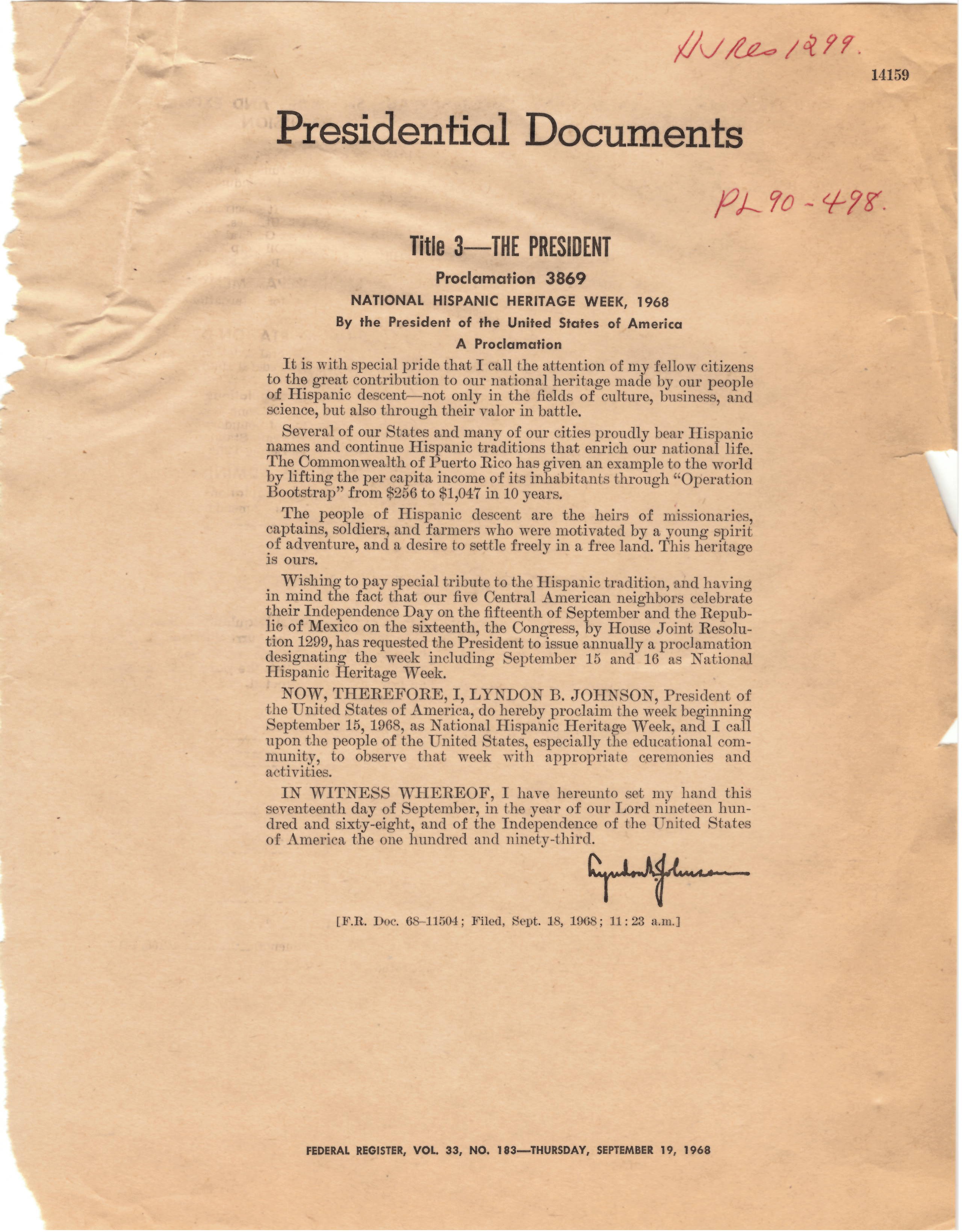
President Lyndon Johnson implemented the observance as Hispanic Heritage Week that year.
U.S. Rep. Esteban E. Torres of Pico Rivera proposed the observance be expanded to cover its current 30-day period. President Ronald Reagan implemented the expansion to Hispanic Heritage Month. It went into law on August 17, 1988.
2. Find Out Why Hispanic Heritage Month Starts on Sept. 15
Sept. 15 is significant because it is the anniversary of independence for Latin American countries Costa Rica, El Salvador, Guatemala, Honduras and Nicaragua, according to the U.S. Library of Congress.
In addition, Mexico and Chile celebrate their independence days on Sept. 16 and Sept. 18.
Also, Columbus Day or Día de la Raza, which is Oct. 12, falls within the 30-day period of Hispanic Heritage Month.
3. Find Out If You Have Implicit Bias and What to Do Next!
Many people think they harbor no bias toward other people, or they believe they know their biases and don’t act on them.
But everyone has implicit bias.
Implicit biases are stereotypes that affect our understanding and decisions about others beyond our conscious control, but fortunately can be “rewired” toward more compassion for others.
Download the free Salud America! Action Pack “Find Out If You Have Implicit Bias and What to Do Next” to see if you have implicit bias. You will also learn from others who have overcome their own implicit bias, and encourage others to learn about implicit bias.
4. Get Your City to Declare Racism a Public Health Crisis!
Racism is a public health crisis.
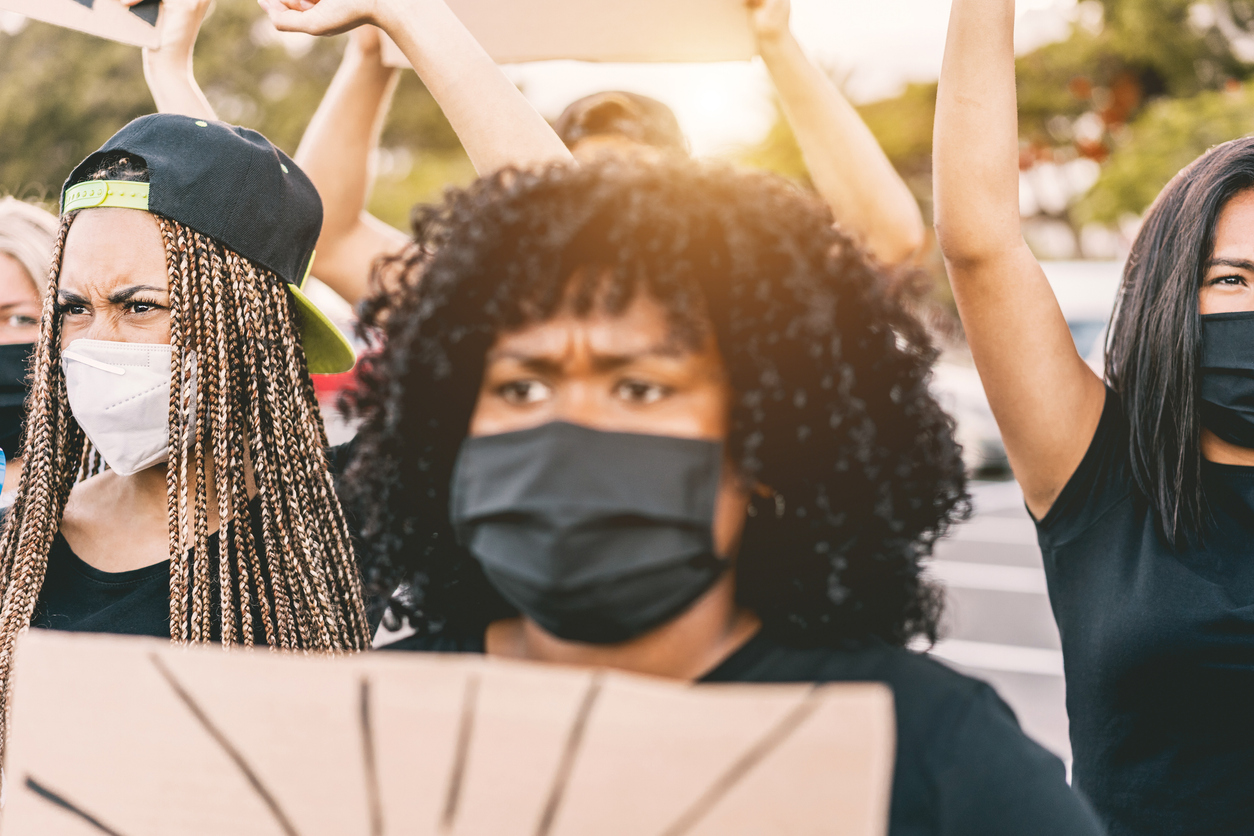 Systemic racism and discrimination makes it harder for Latinos and other people of color to get healthcare, housing, transportation, education, employment, healthy food, safe treatment by police, and more.
Systemic racism and discrimination makes it harder for Latinos and other people of color to get healthcare, housing, transportation, education, employment, healthy food, safe treatment by police, and more.
Download the free Salud America! “Get Your City to Declare Racism a Public Health Crisis Action Pack“!
The Action Pack will help you gain feedback from local social justice groups and advocates of color.
It will also help you start a conversation with city leaders for a resolution to declare racism a public health issue along with a commitment to take action to change policies and practices. It will also help build local support.
5. Write Your Own Medical School Oath!
Medical students start their journey to be a doctor with an ethical oath.
But the classic Hippocratic Oath and other versions are missing doctors’ modern obligations for social justice.
Download the Salud America! action pack, “Write a Medical School Oath to Fight for Social Justice.”
The Action Pack will help medical students write their own medical school oath to reflect doctors’ ever-evolving responsibilities to address systemic racism, social justice, and health equity.
The action pack has materials and technical assistance to help you connect with your peers and school leaders, draft a new or updated medical oath, and build support to address health and social inequities.
6. Volunteer for a Clinical Trial for Your Familia!
Cancer and Alzheimer’s hurt many of our abuelos, moms, dads, and others we love.
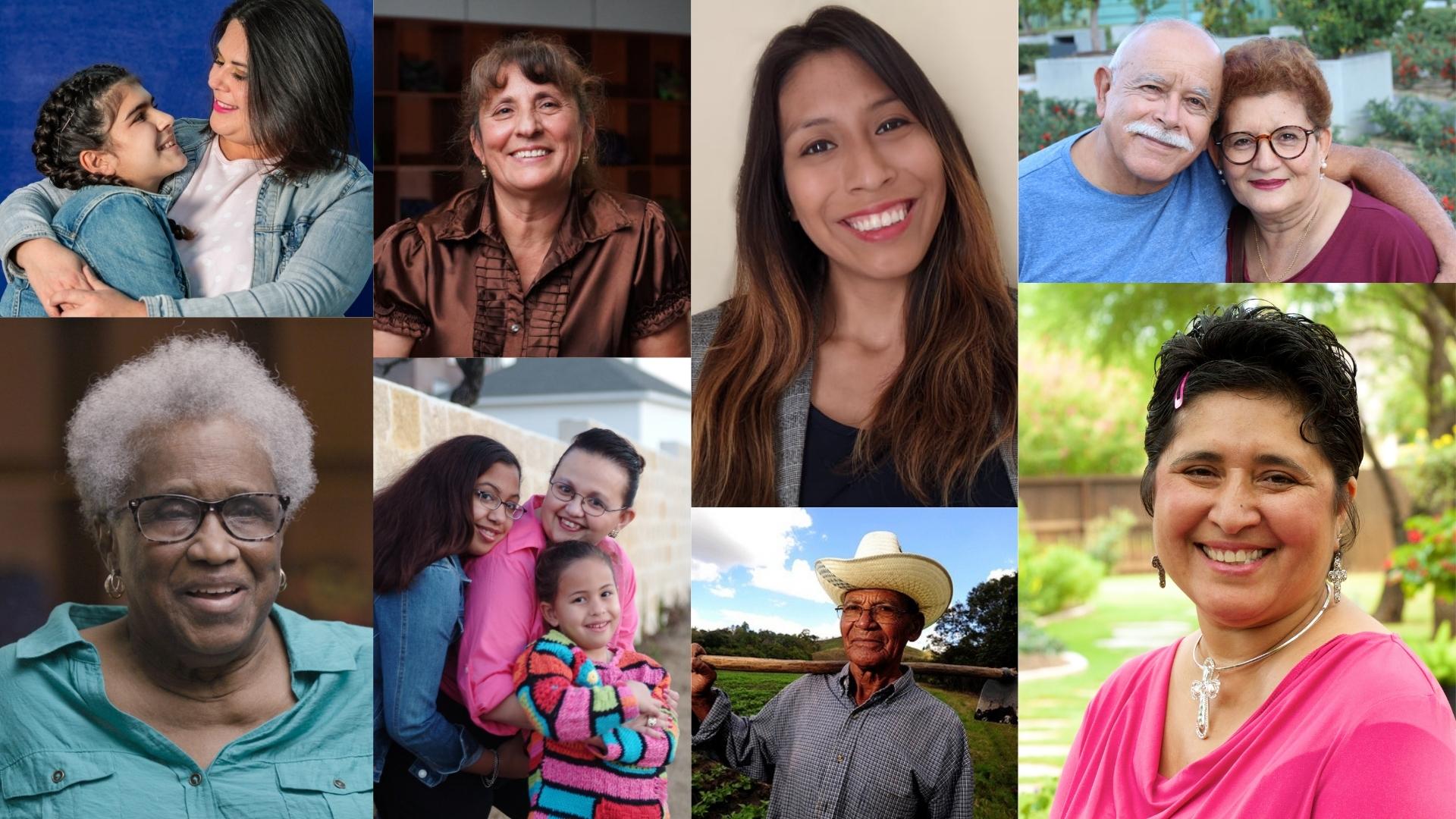 Clinical trials help us fight for our familia.
Clinical trials help us fight for our familia.
Clinical trials are studies that help researchers learn more to help slow, manage, and treat Alzheimer’s and cancer for current and future family members. But without Latino volunteers for clinical trials, the benefits may miss this group.
Visit our clinical trials page to find a clinical trial, read about hero volunteers, and more!
“Latinos in clinical trials are not only helping themselves, but they’re also building a future with better treatments that can help their families in the future,” said Dr. Amelie Ramirez, director of the Institute for Health Promotion Research and Salud America! at UT Health San Antonio.
7. Sign Up to Be an Organ Donor!
Latinos are underrepresented in medicine and clinical trials.
They are also underrepresented in organ donation.
The number of organ transplants performed on Latinos in 2020 was about 30% of the number of Latinos currently waiting for a transplant.
You can:
- register n register to become an organ donor at the state and/or national level.
- sign up to be an organ donor at the state level when getting your driver’s license at your local DMV.
- sign up at the national level through the National Donate Life Registry.
Once you make the decision to become an organ donor, let loved ones know of your wishes. You have the power to save a life, and its as simple as joining a donor registry!
8. Get Your COVID-19 Vaccine!
Have you gotten your COVID-19 vaccine?
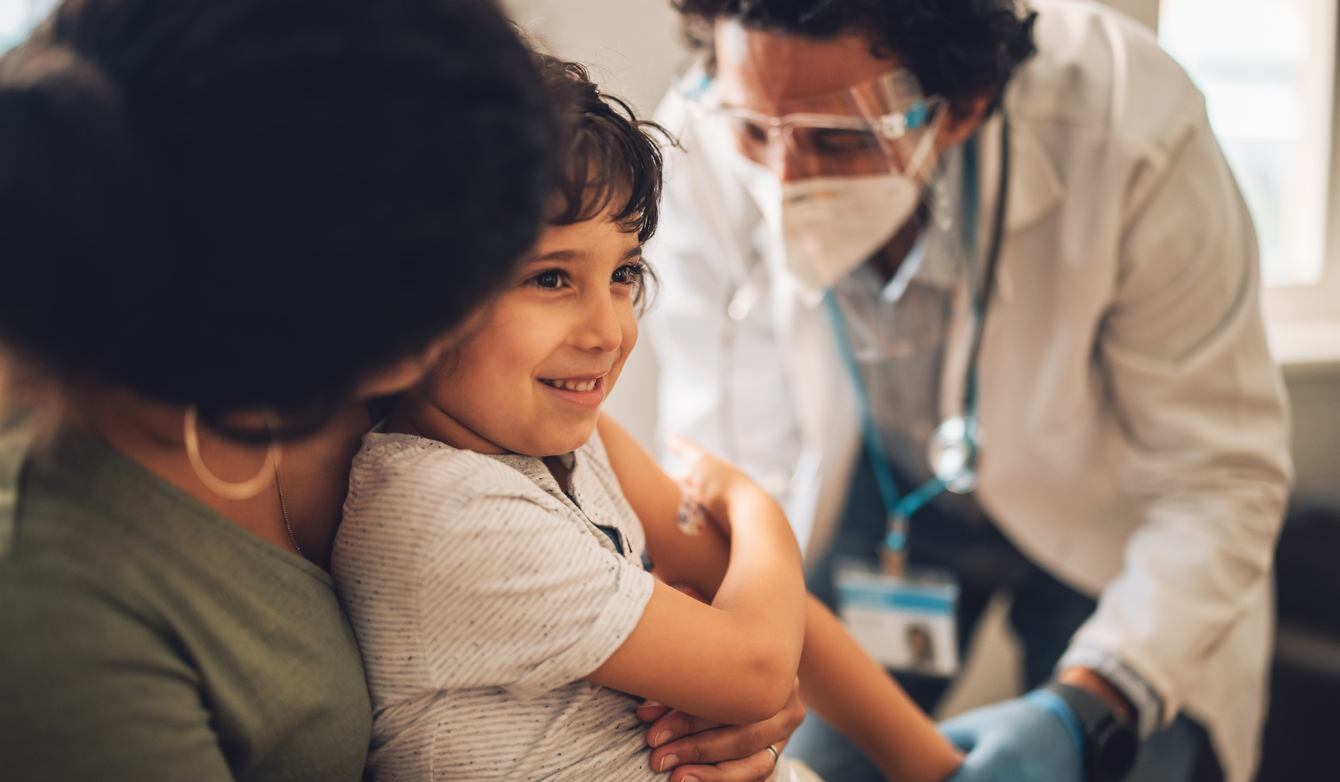 Latinos have been hit the hard with COVID-19 cases and deaths.
Latinos have been hit the hard with COVID-19 cases and deaths.
Getting the vaccine is an important step toward ending a pandemic that has exacted such an inequitable burden on this population. But misinformation is making it hard.
“As Latinos, we are resilient. But part of our resiliency requires action, like getting the COVID-19 vaccine to protect yourself and your family,” said Dr. Amelie G. Ramirez, director of Salud America! at UT Health San Antonio.
Find COVID-19 vaccine locations near you in English or Spanish!
9. Share Stories of Latinos Who Changed Their Hearts and Got the COVID-19 Vaccine!
To help move Latinos from vaccine hesitancy to vaccine confidence, Salud America! is uplifting the stories of real Latinos who overcame misinformation, got the vaccine, reconnected with family, and are helping end the pandemic.
 Share these “change of heart” heroes in English or Spanish!
Share these “change of heart” heroes in English or Spanish!
- Rosa Herrera read on Facebook that the vaccine would inject her with a microchip. She learned that was a myth. See exactly what changed her heart and pushed her to get the vaccine! (en español)
- Jesus Larralde was nervous about the vaccine’s possible side effects. His wife got the vaccine and was fine. See exactly what changed his heart and pushed him to get the vaccine! (en español)
- Helen Cordova thought the vaccine was rushed. But she did her research and learned the vaccine’s safety, and volunteered to be the first person in California to get the vaccine! See exactly what changed her heart! (en español)
10. Download a ‘Health Equity Report Card’ for Your City with Local Data on COVID, Social Vulnerability!
In August 2021, we updated our Health Equity Report Card to include place-based information on your county’s Social Vulnerability Index Score and COVID-19 cases, deaths, and hospitalizations.
The Health Equity Report Card, first launched in 2017, auto-generates Latino-focused and local data with interactive maps and comparative gauges. This can help you visualize and explore inequities in housing, transit, poverty, health care, food, and education.
You will see how your county stacks up in these health equity issues — now including social vulnerability and COVID-19 — compared to your state and the nation.
Then you can share the Report Card with your local leaders to advocate for healthy change!
Get your Health Equity Report Card!
11. Start a School Food Pantry!
About 1 in 6 children are food insecure. They don’t know where their next meal is coming from.
Your school can help these kids!
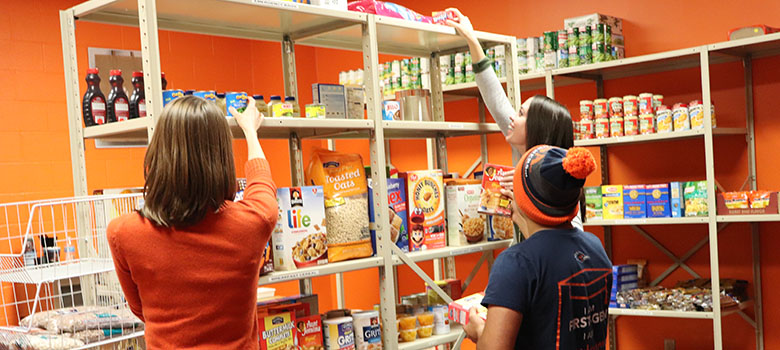 For Hispanic Heritage Month, try the Salud America! “School Food Pantry Action Pack” is a free guide to help school personnel talk to decision-makers, work through logistics, and start a School Food Pantry to help hungry students and reduce local food insecurity.
For Hispanic Heritage Month, try the Salud America! “School Food Pantry Action Pack” is a free guide to help school personnel talk to decision-makers, work through logistics, and start a School Food Pantry to help hungry students and reduce local food insecurity.
A School Food Pantry accepts, stores, and redistributes donated and leftover food to students.
The Action Pack was created by Dr. Amelie G. Ramirez, director of Salud America! at UT Health San Antonio.
Dr. Ramirez had input from Jenny Arredondo, nutrition director at San Antonio ISD. Arredondo started school food pantries on 10 campuses in 2017-18, based on a Texas law change led by Diego Bernal.
12. Start ‘Handle With Care’ So Police Alert Schools if Kids Are Exposed to Trauma (Even If School is Closed or Virtual)!
60% of U.S. children have been exposed to violence, crime, or abuse.
These kids still have to go to class, virtually or in person. They carry a burden of trauma that can interfere with their behavior and grades. And schools don’t know there’s an issue at home.
Download the free Salud America! “Handle With Care Action Pack” to start a Handle With Care program. In the program, police notify schools when they encounter children at a traumatic scene, so schools can provide support right away, even if operating virtually.
The Action Pack contains materials and technical assistance to start a conversation and plans for implementing a Handle With Care program. Over 65 U.S. cities have started such a program.
The Action Pack was created by Dr. Amelie G. Ramirez, director of the Salud America! Latino health equity program at UT Health San Antonio, with help from Andrea Darr, director of the West Virginia Center for Children’s Justice, which started the first Handle With Care program in 2013.
13. Create a Trauma-Sensitive School!
The Salud America! “Trauma Sensitive School Action Pack” is a free guide with coaching to help school personnel talk to decision-makers, build a support team, implement trauma-sensitive systems to support traumatized students.
Included are real templates from John Hernandez of East Central ISD in San Antonio.
You can use these templates to craft your own system with protocols to identify/track/monitor students, a community resource guide, and a chain of command system.
14. Help Your City Adopt Smoke-Free Multifamily Housing!
People who live in multifamily housing share air with their neighbors ─ including secondhand smoke.
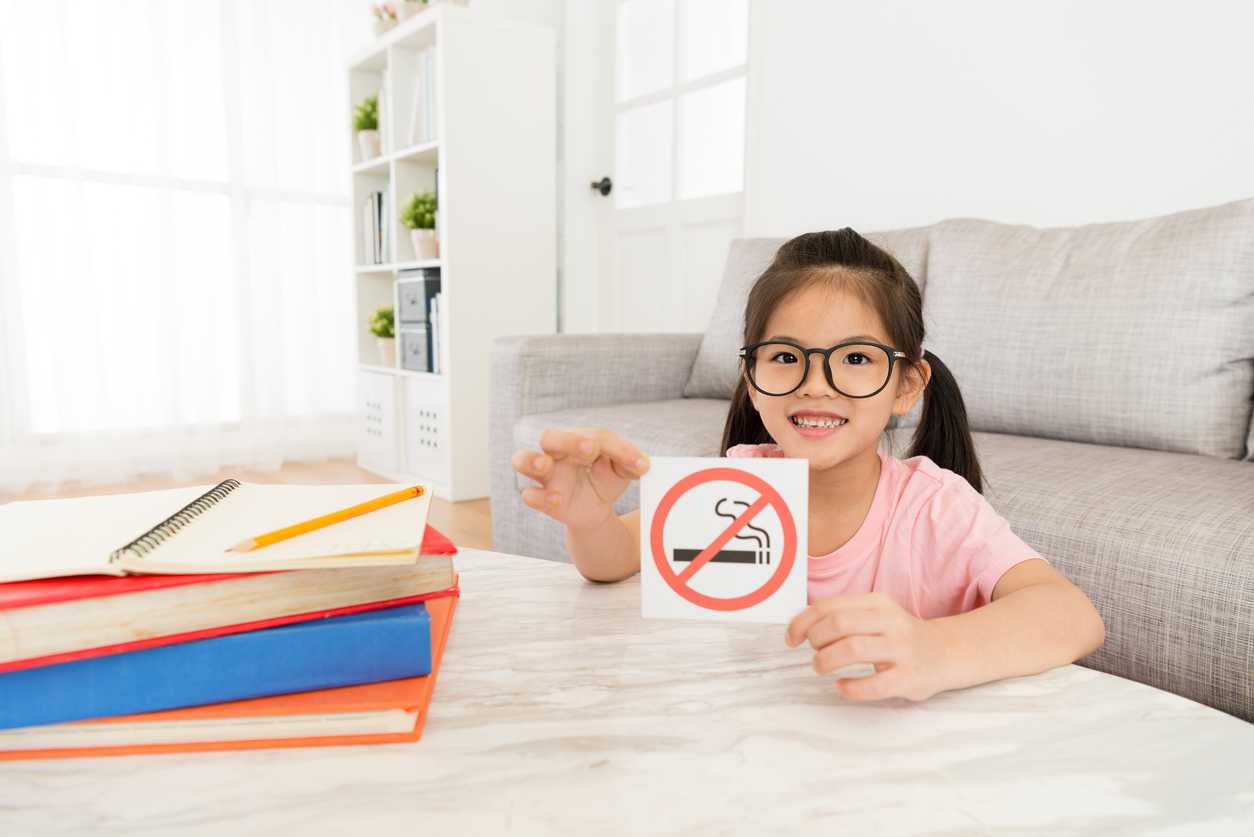 Secondhand smoke contains over 70 cancer-causing chemicals, has killed over 2.5 million people, and can travel through doorways, halls, windows, ventilation systems, electrical outlets, and gaps around fixtures.
Secondhand smoke contains over 70 cancer-causing chemicals, has killed over 2.5 million people, and can travel through doorways, halls, windows, ventilation systems, electrical outlets, and gaps around fixtures.
Download the free Salud America! Action Pack “Help Your City Adopt Smoke-Free Multifamily Housing” to help your city explore a smoke-free multifamily housing policy for common areas and individual units.
Experts say this can protect the health of tenants and staff of apartments, as well as save property owners money in unit maintenance, fire prevention, insurance, and reduced legal liability.
You can use model emails, graphics, and policies to explore a local smoke-free multifamily housing policy in your town.
15. Subscribe to the Only Latino Health Equity Podcast!
The “Salud Talks” podcast, from the team at Salud America! at UT Health San Antonio, is now live!
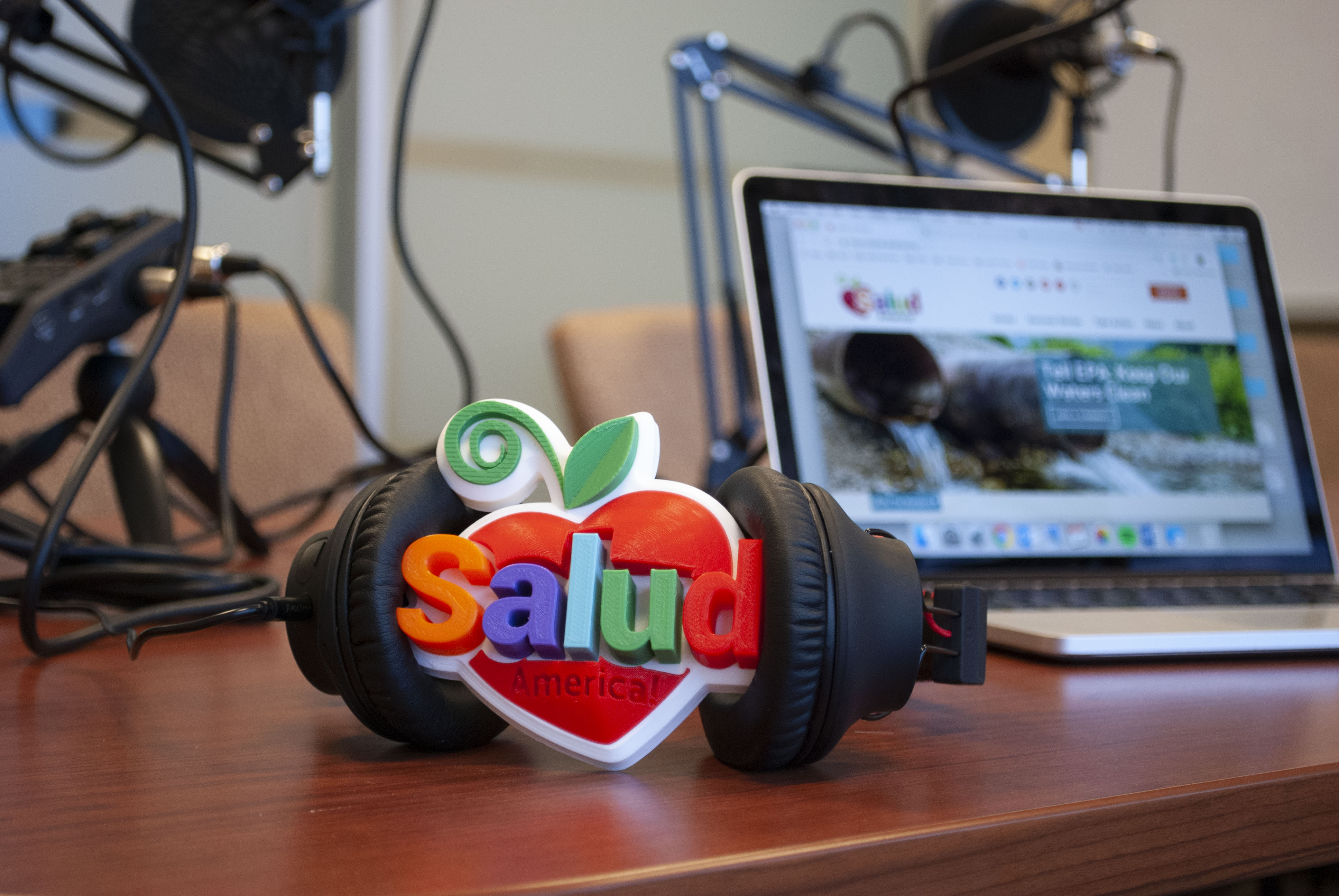 For each episode, listeners will hear from health equity experts—from grassroots movements to national organizations—on topics ranging from cultural representation, climate change, childhood trauma, mental health, and more.
For each episode, listeners will hear from health equity experts—from grassroots movements to national organizations—on topics ranging from cultural representation, climate change, childhood trauma, mental health, and more.
Salud Talks episodes are released every every month.
Each episode is available wherever fine podcasts are downloaded, including Apple Podcasts, Spotify, and SoundCloud.
16. Think “Water Bottle Fountains”
Water Bottle Fountains are filtered water dispensers for easily filling and refilling water bottles.
Water Bottle Fountains give kids much-needed access to safe drinking water throughout the school day.
They also help keep kids hydrated while saving families money from buying bottled water. They help the environment by reducing waste.
Salud America! wants to help you get Water Bottle Fountains at your school with our custom-for-you Water Bottle Fountain Action Pack with Coaching!
GET YOUR WATER BOTTLE FOUNTAIN ACTION PACK!
17. Get Outside and Garden!
Caesar Valdillez loves where he lives—the Southtown neighborhood in San Antonio (63% Latino).
Valdillez grew up in the neighborhood and even moved back after he finished college, hoping to meet like-minded environmentalists to improve the neighborhood and sustain it for many years to come.
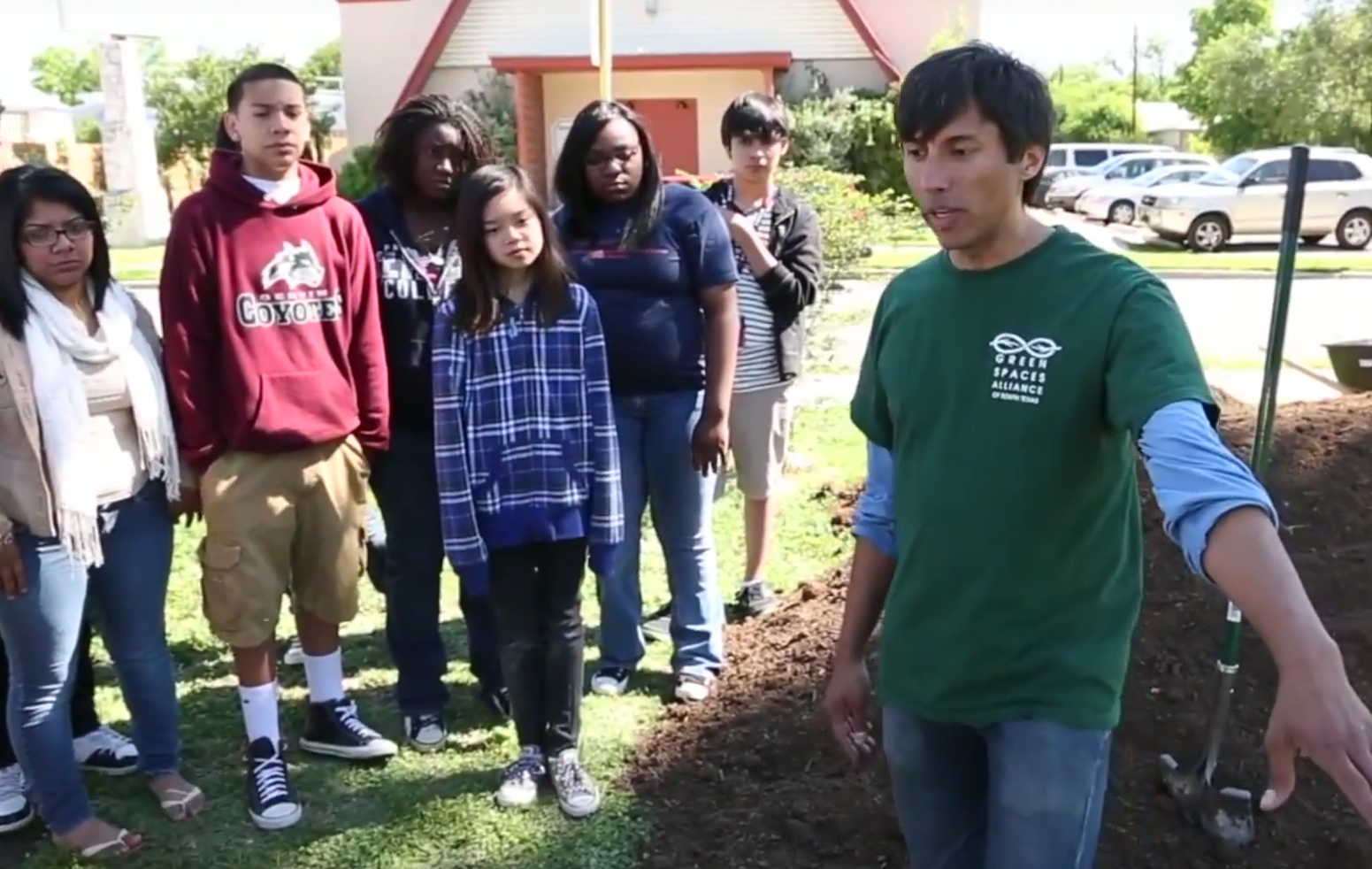 But he noticed Southtown lacked the healthy food options it needed to be a truly healthy community.
But he noticed Southtown lacked the healthy food options it needed to be a truly healthy community.
“Our neighborhood does not have any reasonable grocery store in the area, especially with fresh produce and herbs,” he said.
Valdillez decided to help.
He worked with neighbors and the city to start a local garden!
For Valdillez and his neighbors, it’s all about making their community better for everyone.
“Urban gardening is our grassroots way of making a difference in the world, one preserved green space at a time,” Valdillez said.
18. Volunteer for Your Comunidad!
Kindness counts.
Helping people is good. And it also helps you, too.
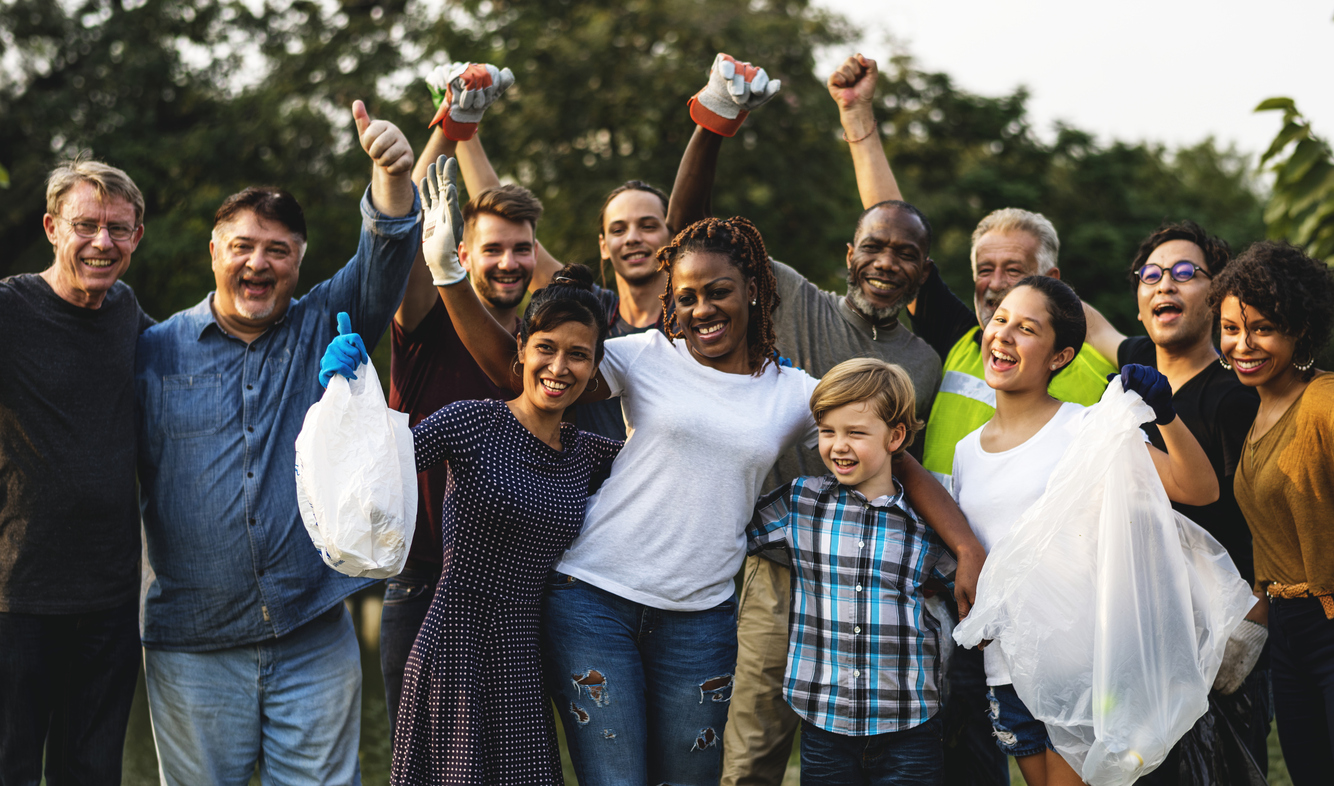 “Doing a kindness produces the single most reliable increase in wellbeing [for the doer] of any exercise we’ve tested,” said Dr. Martin Seligman of Penn’s Positive Psychology Center.
“Doing a kindness produces the single most reliable increase in wellbeing [for the doer] of any exercise we’ve tested,” said Dr. Martin Seligman of Penn’s Positive Psychology Center.
A national survey of 3,351 adults found that the overwhelming majority of participants reported feeling mentally and physically healthier after a volunteer experience, HuffPost reports.
“Studies have shown that volunteering helps people who donate their time feel more socially connected, thus warding off loneliness and depression,” said Stephanie Watson of the Harvard Health Blog. “A growing body of evidence suggests that people who give their time to others might also be rewarded with better physical health—including lower blood pressure and a longer lifespan.”
So help out your fellow neighbors this Hispanic Heritage Month!
By The Numbers
44
million
immigrants live in the United States

